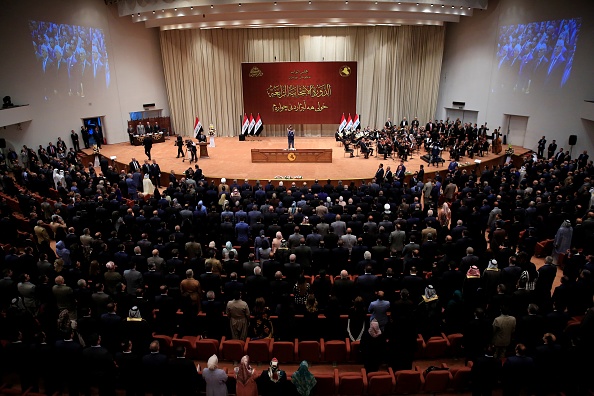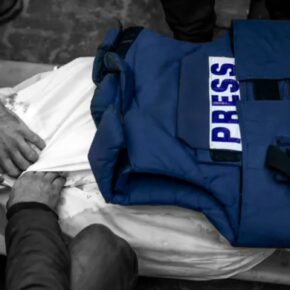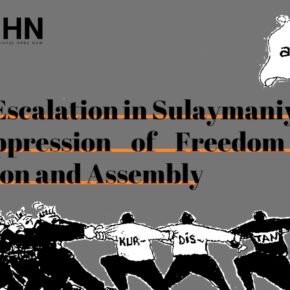Scrap Bill to Restrict Free Speech.. Lawmakers to Decide on Abusive Cybercrimes Measure
Iraqi lawmakers are considering a draft law on information technology crimes that could be used to stifle free expression, Human Rights Watch said today.
Free speech is already under attack in Iraq, and on November 23, 2020 lawmakers discussed this draft law and planned to hold a second reading during the week of November 29. The bill includes vague provisions that will allow Iraqi authorities to harshly punish expression they decide constitutes a threat to governmental, social, or religious interests.
“This law would give Iraqi authorities yet another tool to suppress dissent over the main medium that journalists, activists, and the general public rely on for information and open debate,” said Belkis Wille, senior crisis and conflict researcher at Human Rights Watch. “If parliament passes the law, it will further undermine the already narrow field for free speech and stifle public discussion and debate online.”
In 2011, Iraq’s Council of Ministers proposed an “Information Technology Crimes Bill” to parliament. Human Rights Watch warned at the time that it would most likely be used to restrict free speech, in violation of international law, and pose a severe threat to journalists, whistleblowers, and peaceful activists. The law did not pass at the time, but on November 23, the Iraqi parliament discussed the same draft piece of legislation – often referred to as the cybercrimes bill, which a group of lawmakers had reintroduced in parliament in 2019.
The bill states in article 2 that it aims “to provide legal protection for the legitimate use of computers and information networks and punish those who commit acts that constitute an encroachment on the rights of their users.” The bill provides penalties for the use of computers in connection with various prohibited activities, such as financial fraud and misappropriation (article 7), money laundering (article 10), network disruptions (article 14), illicit monitoring (articles 15(1)(b) and 16), and intellectual property violations (article 21).
The bill is not narrowly targeted, however. Several articles criminalize the use of computers in connection with a wide range of broadly defined activities, many of which have been unregulated, without any specific criteria for what would constitute a crime. These articles appear to conflict with international law and the Iraqi constitution, and would seriously curtail the right to freedom of expression and association.
For example, article 3 sets a term of up to life in prison and a fine of between roughly USD$21,000 and $42,000 for anyone who intentionally uses computer devices and the internet for “undermining the independence, unity, or safety of the country, or its supreme economic, political, military, or security interests,” or “participating, negotiating, promoting, contracting with, or dealing with a hostile entity in any way with the purpose of disrupting security and public order or endangering the country.”
Article 6 allows for the same prison term and fine for using a computer or information network for “inflaming sectarian tensions or strife; disturbing security and the public order; or defaming the country;” or “publishing or broadcasting false or misleading events for the purpose of weakening confidence in the electronic financial system, electronic commercial or financial documents, or similar things, or damaging the national economy and financial confidence in the state.”
Article 21 sets a minimum one-year prison term for “any person who encroaches on any religious, moral, family, or social values or principles or the sanctity of private life using an information network or computer devices in any shape or form.” Article 22 provides for a prison sentence and fine for anyone who “creates, administers, or helps to create a site on an information network that promotes or incites to licentiousness and obscenity or any programs, information, photographs, or films that infringe on probity or public morals or advocate or propagate such things.”
Given the vagueness and breadth of these articles, as well as the severity of the punishments, the authorities could use them to punish otherwise lawful expression that they claim constitutes a threat to some governmental, religious, or social interest. Or officials could use it to deter legitimate criticisms of, or peaceful challenges to, government or religious officials or policies.
In addition, the bill criminalizes the “promotion of terrorist acts” without defining these acts or what constitutes “promotion.” Terrorism is not clearly defined in Iraqi law and judges have condemned people to death or life sentences merely for working in a hospital during a time it was under Islamic State (ISIS) control, for example, or for providing water to ISIS fighters on the front line, even if against the accused person’s will.
The effort to pass the bill comes at a time when free speech is already under attack in Iraq. In June, Human Rights Watch released a report on the growing number of prosecutions of journalists under defamation and incitement laws in the country, including in the Kurdistan Region of Iraq.
“This parliament had an opportunity to use its term in office to improve the rights of Iraqis, but instead it seems willing to wield its power to give the government even more tools to suppress free speech,” Wille said.





